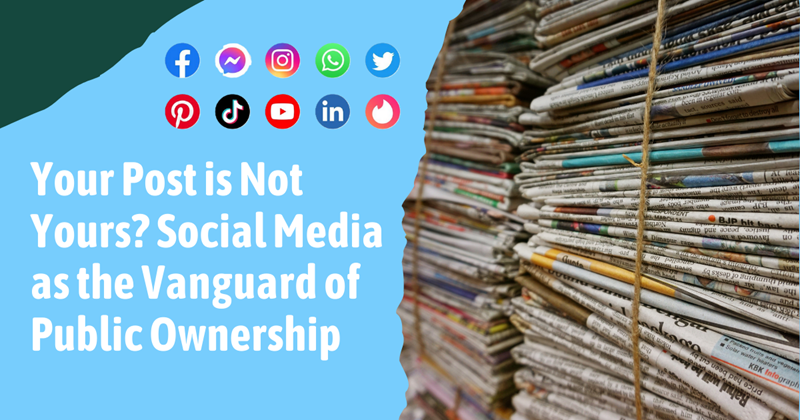The issue
Abass Sesay’s allegations of plagiarism against Sierraloaded are understandable, but they miss the larger truth of the digital age: content shared on social media is not private property—it belongs to the public. By posting on platforms designed for open communication, an author surrenders exclusivity in favor of engagement, visibility, and influence. To conflate reposting with plagiarism is to misunderstand the very ethos of free speech and open access that social media embodies.
Social Media is the Modern Public Square
The moment an article is published online, especially on platforms like Facebook or Twitter, it becomes part of the public domain of ideas. These platforms are designed for accessibility and sharing, not exclusivity. As the U.S. Supreme Court stated in Packingham v. North Carolina (2017), social media represents “the most important places…for the exchange of views.” By participating in this space, authors enter a marketplace of ideas where their content is not locked away but is part of a broader dialogue.
When Sesay published his article on “Press Freedom Under Siege,” he entered this public square. Like a speaker in a park, his words were open for others to amplify, challenge, or share—not to be kept in isolation.
Sharing is Not Stealing
The accusation of plagiarism assumes bad faith—an intent to deceive or steal. However, reposting an article, especially if the original author’s name remains visible, does not meet this standard. Consider the case of Authors Guild v. Google (2015), where the U.S. Court of Appeals ruled that Google’s act of scanning and providing snippets of copyrighted books was not copyright infringement because it served a transformative purpose—making information accessible to the public. Similarly, reposting content with attribution, even implicit, serves the public’s interest in consuming and engaging with quality journalism.
Sierraloaded’s actions, if they retained Sesay’s byline, cannot be equated with plagiarism. Instead, they reflect the realities of digital journalism, where content is shared to amplify its reach and relevance.

The Value of Being Reposted
Rather than diminishing the original author, reposting enhances their influence. Sesay’s work reached a wider audience through Sierraloaded, contributing to the national conversation on press freedom. To quote Justice Louis Brandeis in Whitney v. California (1927): “The remedy to be applied is more speech, not enforced silence.” This applies to journalism as much as it does to public discourse. By encouraging others to engage with his ideas, Sesay solidifies his role as a thought leader, not just a content creator.
Public Platforms, Public Ownership
The notion that social media content is privately owned clashes with the reality of how these platforms operate. Facebook’s terms of service, for example, make clear that by sharing content, users grant a license for others to “share” and “use” that content in accordance with the platform’s design. This framework underscores a principle upheld in Feist Publications, Inc. v. Rural Telephone Service Co. (1991) creativity does not guarantee absolute ownership, especially when the work is made available for public use.
A Call for Perspective, Not Retribution
Rather than demanding apologies or labeling Sierraloaded unethical, Sesay should recognize the value of his work being cited and shared. By fostering a collaborative dialogue with other media outlets, he could set a precedent for fair use and acknowledgment without jeopardizing the free flow of information. His energy could be better directed toward educating audiences about press freedom and journalistic ethics rather than railing against practices intrinsic to the online ecosystem.
Conclusion
In an age defined by digital immediacy and open platforms, authors must embrace the reality that publishing on social media carries an implicit invitation to share, remix, and redistribute. Sesay’s frustration with Sierraloaded, though valid, overlooks the transformative power of public discourse. Legal precedents from Packingham to Google Books affirm that information shared online is a public good, not private property. Instead of stifling collaboration with accusations of theft, let us champion a vision of journalism that thrives on openness, transparency, and the relentless exchange of ideas.











